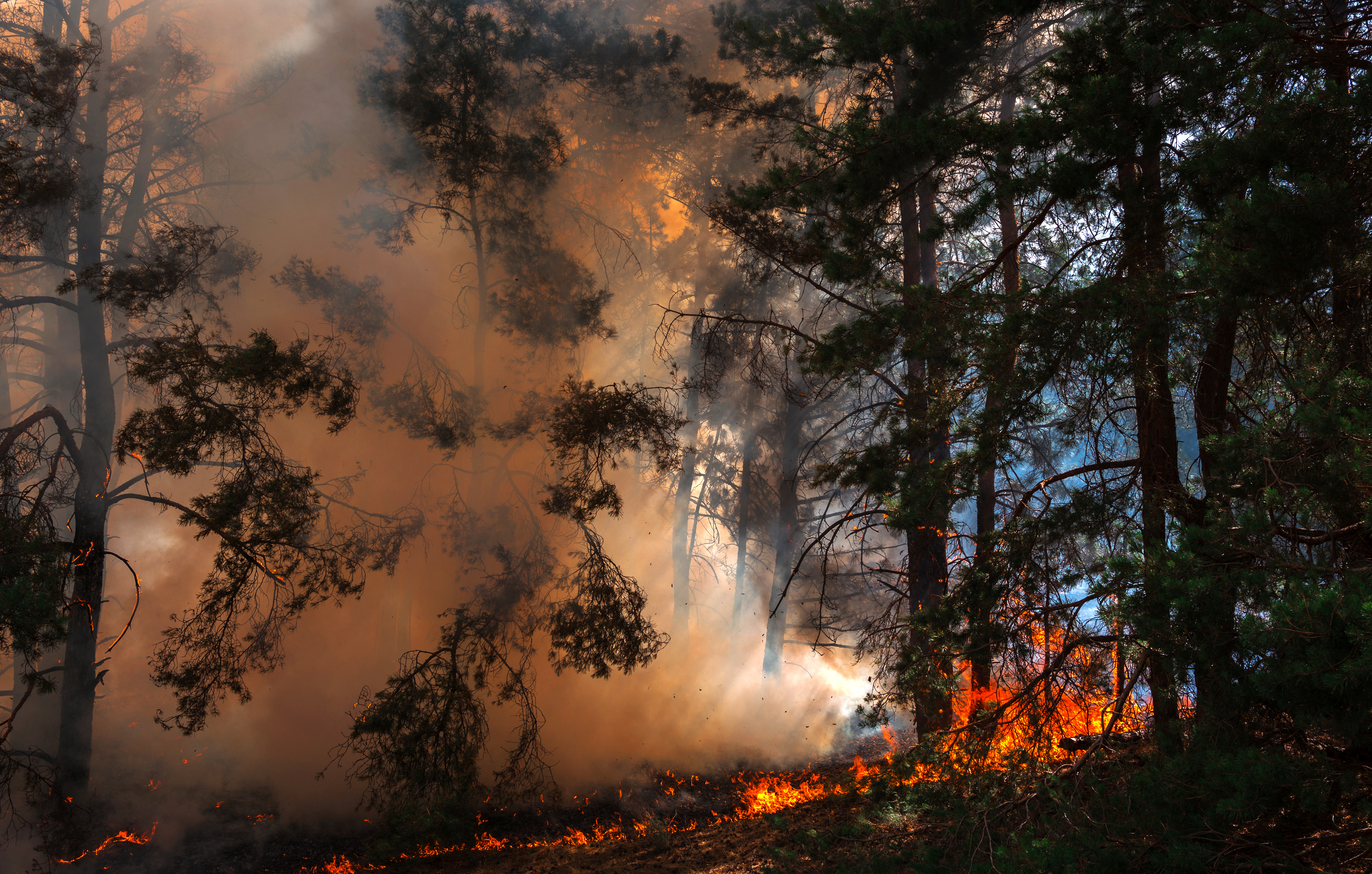UTOPIA FIBER ANNOUNCES BETA TEST OF ‘EDWIN PROJECT’ – A WILDFIRE EARLY DETECTION SYSTEM
A.I.-Enabled Thermal Imaging Cameras Will Alert First Responders to First Signs of Wildfires, Saving Time, Property, and Lives
First EDWIN Project Cameras Unveiled in Layton, Murray, and Woodland Hills, UT
Each Minute of Response Time Reduced Saves $44,000-$215,000 in Economic Loss including $3,000 in Firefighting Costs
(Layton, UTAH July 15, 2020) – A hot-and-dry 2020 means above-normal fire conditions throughout Utah and the west, and as wildfire season begins, firefighters have a new early-detection tool at their fingertips called “EDWIN.” EDWIN, which stands for Early Detection Wildfire Imaging Network was created by the Smart Cities team at UTOPIA Fiber (in conjunction with a Brigham Young University Capstone Project), and uses thermal imaging cameras to detect and report hotspots to area fire departments, saving critical time for first responders. EDWIN’s beta test was launched simultaneously in Layton, Murray, and Woodland Hills, UT and leverages UTOPIA’s ultra-fast fiber network to instantly transmit video and other data to authorities when just a small hot spot is detected.
“The EDWIN Project thermal imaging cameras are so advanced, they can detect a hot spot down to a pixel,” explains Roger Timmerman, Executive Director, UTOPIA Fiber. “Once the cameras detect temperatures exceeding 300 degrees Fahrenheit, data is instantly transmitted through UTOPIA’s fiber lines to the fire department which can review and respond.”
For decades, Salt Lake Valley fire crews have depended largely on residents dialing 9-1-1 when they spotted smoke. In many instances, these calls come in too late to prevent the rapid spread of fire, especially during dry and windy conditions. The EDWIN Project is programmed to automatically alert crews to developing hotspots well before smoke is visible, significantly cutting down response times and potential fire damage. To quantify, each minute of response time that is reduced by “EDWIN” is estimated to prevent between $44,000 – $215,000 in economic loss (including $3,029 in firefighting costs), depending on topography and population density.
After a close brush with a massive blaze that nearly wiped out the community in 2018, the City of Woodland Hills eagerly jumped aboard as the first beta test site for the EDWIN Project. Layton City followed suit shortly thereafter due to similar fire concerns. “We’ve seen firsthand how devastating wildfires can be,” said Alex Jensen, Layton’s City Manager. “Now, with earlier detection, we can prevent a small problem from becoming a large one. Having a headstart will save lives and property. Layton City is proud to be part of the EDWIN Project’s beta test for the nation.”
According to the U.S. Forest Service, the cost of fighting wildfires has ballooned to $284 per acre in recent years, which adds pressure to municipal budgets. “We anticipate that EDWIN will be an important tool in keeping the community safe and reducing the rapidly-escalating cost of battling wildfires. We’re looking forward to learning more during the beta test and seeing how EDWIN cuts wildfire response time,” said Chief Ward. “EDWIN could make fighting wildfires safer for our team and safer for our community members.” The chief also reminded residents that they should continue to call 9-1-1 if they observe signs of a fire.
Timmerman said that UTOPIA Fiber’s Smart Cities team will track response times, and compare that data to records from previous years to quantify reductions in significant wildfire events. “None of this would be possible without fiber connectivity,” said Timmerman. “There’s an enormous amount of data that has to move seamlessly and instantly. The EDWIN Project shows that fiber connectivity can power technology to address community needs. If all goes well, EDWIN will be a game-changer—and literally a life saver—for the residents and businesses of Utah and beyond.”
Communities interested in joining The EDWIN Project’s beta test, or learning more, can visit UTOPIAfiber.com/EDWIN.
Key Statistics:
- In the last decade, the United States averaged over 64,000 wildfires per year, burning an average of 6.8 million acres, according to the National Interagency Fire Center (NIFC)
- The number of wildfires has decreased over the last 30 years, but the number of acres burned has increased significantly. (Source: NIFC)
- The total annualized cost of U.S. wildfires is $24 billion, primarily driven by the cost of homes, infrastructure, air pollution, and firefighting. (Source: NIFC)
- The average wildfire can travel 6.7 miles per hour. There are 640 acres per mile. According to the U.S Forest Service, fighting wildfires costs $284 per acre or $181,760 per mile.
- Wildfires account for between $71 billion and $350 billion in economic loss each year. Losses vary due to population density and topography. (Source: NIST/U.S. Department of Commerce).
- For every minute that the EDWIN Project early-alerts first responders, it is estimated to save between $44,000 and $215,000 in economic loss (which includes $3,029 in firefighting costs).
- Utah’s 2020 fire season has seen wildfires more than triple last year’s numbers. According to Utah’s Department of Agriculture and Food, Utah averages 1,300 wildfires which burn 250,000 acres each year.
About UTOPIA Fiber
Created by a group of Utah cities, the Utah Telecommunication Open Infrastructure Agency (UTOPIA) is a community-owned fiber optic network that uses the Open Access model to promote competition by giving customers the freedom to choose which telecommunication services they want. With fiber availability to over 100,000 businesses and residences in over 50 communities, UTOPIA Fiber is the largest and most successful Open Access network in the United States and enjoys the industry’s highest customer satisfaction scores. Since 2009, the agency has successfully designed, built, and operated over $200 million worth of fiber projects throughout Utah, all of which have been funded completely through subscriber revenue, at no cost to taxpayers.
###
MEDIA CONTACTS:
-or-
